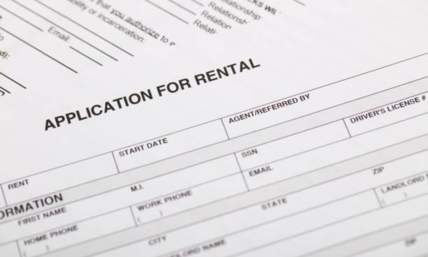How to Get Credit Collection Services Off Your Credit Report - The Full Guide
You may have been hearing from Credit Collection Services, who are demanding money from you and wondering why this is the case. Credit Collection Services, commonly known as CCS, are a debt collector agency who have either bought a debt that you owe from your creditor or have been hired by your creditor to collect the debt from you.
As with any situation involving debt, this can lead to a highly stressful time in your life, especially considering that debt collectors are known for adding a lot of pressure on consumers. CCS may place the debt account onto your credit report, which in turn may cause a lot of damage to your credit, and in some instances, lead to legal action being taken.
In this guide, we’ll be taking you through everything you need to know about CCS and how you can get them off your credit report. Whether you want to dispute the debt or settle on a payment plan, reading this guide will give you all the tips you need to know.
Also read: 11 Best Personal Finance Books

What And Who Are Credit Collection Services?
Credit Collection Services are often referred to as CCS or CCS Collections and are known as one of the largest debt collection agencies working in the United States. Their head office is located in Norwood, Massachusetts and they currently employ over 700 people, earning approximately $53 million per year.
What makes them such a huge debt collection agency is the fact that they work within a wide range of industries including banking, healthcare, insurance, and utilities to name a few.
They have numerous trades as names, meaning that you may encounter them under the following business names:
-
CCS Commercial
-
CCS Companies
-
CCS Credit Collection Services
-
CCS Offices
-
CCS Payment
Most of the time, CCS will buy debts from creditors and then aim to collect all or some of the debt owed from consumers.
Also read: 12 Best Finance Podcasts For Your Savings
How To Get CCS Off Your Credit Report
When it comes to getting CCS off your credit report, there are certain things you need to follow to ensure that everything is done properly and correctly.
Here is how you can get CCS off your credit report:
-
Understanding Your Rights
It may not seem like it due to the pressure that debt collectors can push on you, but you do have rights and knowing these rights is the best place to start. The Fair Debt Collection Practices Act (known as FDCPA) lays out the rights that you have when it comes to debt collection.
Here are the most important ones you should know about:
-
Debt collectors aren’t allowed to call you between 9 pm and 8 am.
-
They are forbidden from calling your place of work.
-
For those who have lawyers, the debt collector must speak with the lawyer rather than yourself directly.
-
They aren’t allowed to speak with family members or friends regarding your debt.
-
They cannot use threatening language, including threats to harm you or your property as well as the use of profane language.
-
They must always identify who they are and what company they work for and are not allowed to claim that they are law enforcement.
-
They are not allowed to threaten you with the seizure of assets or imprisonment.
In any case where a debt collector is not following the rules, always report them to your state attorney’s general as well as the CFPB and the FTC.
Also read: Cost Of Living By State In USA

-
Verifying Your Debt
Once you feel that you know and understand your rights, you will be in a position where you can begin to evaluate your debt. The first thing that you need to look into is the Notice of Debt, which should be provided to you by the debt collector within five days of them contacting you.
The Notice of Debt must contain certain information and any essential information that is left out warrants the debt invalid and thus not collectible. The first thing you need to check is whether the Notice of Debt has an itemization date. This is to ensure that the Notice of Debt is within the Statute of Limitations.
The Notice of Debt should include the following:
-
The name and mailing address of the debt collector
-
The name and mailing address of the consumer
-
The name of the creditor if the debt is related to financial products such as credit cards or loans
-
The account number of the debt
-
The creditor who is owed the debt
-
The current debt amount as well as a list of previous payments made as well as any additional fees
-
A statement advising you of your rights under the FDCPA that allows you to dispute the debt within 30 days of receiving the letter.
The Notice of Debt will come with a form that you can return should you decide to dispute the debt. You will need to choose one of the following three options:
-
The debt does not belong to you
-
The amount on the debt is not correct
-
Other (in this instance, you will need to add additional information)
Making sure that the Notice of Debt contains all the above information is crucial as it can render the debt uncollectible if any of it is missing. Therefore, it’s important that you are not intimidated or bluffed into paying them if they have not provided you with adequate information.
If you decide to dispute the debt, you will need to make sure that you do this within 30 days of receiving the notice. When disputing a debt, make sure that you send them a letter that includes the following:
-
Always ask for specific documentation that verifies and validates the debt. This can include a copy of the original contract.
-
Inquire whether the statute of limitations has expired. The debt collector doesn’t legally have to tell you, but they are equally not allowed to lie. This means that if they don’t tell you, it could be a sign that the statute of limitations has expired on your debt.
-
Inquire whether the debt collection agency has the license to collect debt in your home state. Like the previous point, they don’t have to tell you, but they are not allowed to lie. You can ask for specific license information such as the license number and date of the license.
-
Ask for any copies of the most recent billing statement that was sent by the creditor.
Make sure that you send the letter to CCS using certified mail and keep a copy of the letter for your own records.
Also read: How To Manage Personal Finances
-
Stop CCS From Calling You
Once you have verified and validated your debt, you need to stop CCS from calling you. Prior to 2021, debt collectors could call you as much as 15 times a day, but thankfully, this has been reduced greatly.
The new regulation has placed restrictions on how often CCS can call you. They are not allowed to call you more than seven times within seven consecutive days, meaning that calling you any more than this is breaking the regulation and should be reported.
The best way to stop the calls from a debt collector is to write a “stop contact” letter to formally request that they stop contacting you. Make sure you send the original letter by certified mail and ask for a return receipt and also ensure that you maintain a copy of the letter for your own records.
-
Contacting The Credit Bureaus
For those who are adamant that the debt doesn’t belong to them, you can contact the credit bureaus to file a dispute. You can also dispute a debt if the debt collector has not validated the debt correctly.
In order to do this, you will need to contact each credit bureau separately and file a unique account with them explaining your situation in as much detail as you with as much documentation and evidence as possible.
The credit bureaus you will need to contact are:
You can contact them via mail, telephone, or electronically depending on your preference. They will then conduct an investigation and try to verify the debt. If they are unable to verify and validate the debt, then it will be removed from your credit record.
Also read: Independent Contractor Pay Stub
-
Settling The Debt
The last course of action is settling the debt. The majority of debt collectors will actually spend around 4 cents per dollar of the debt, meaning that you can negotiate how much you actually pay back. This is because they will still make a profit, even if you don’t pay off the debt in full.
On average, debt collectors tend to accept between 40 and 60 percent of the remaining debt balance, which can result in your saving thousands of dollars.
A good place to start is by offering 10% and then seeing what they say and hearing their counteroffer.

Conclusion
In conclusion, it’s never nice having to deal with a debt collector, especially one that can be as daunting and intimidating as CCS. However, this doesn’t mean that there is nothing that you can do. Making sure that you know and understand your rights is the best starting point as you will be able to display your knowledge to your debt collector, which in turn will show that you are not easily intimidated by them.
By following these points closely and carefully, you’ll be able to get CCS off your credit report in no time, whether this is by disputing the debt or settling with a payment plan. Debt collectors do not have the correct information all the time, so make sure you are double-checking the information provided in the Notice of Debt.
Our pay stub maker is a simple way to generate pay stubs online and it is very user-friendly.















